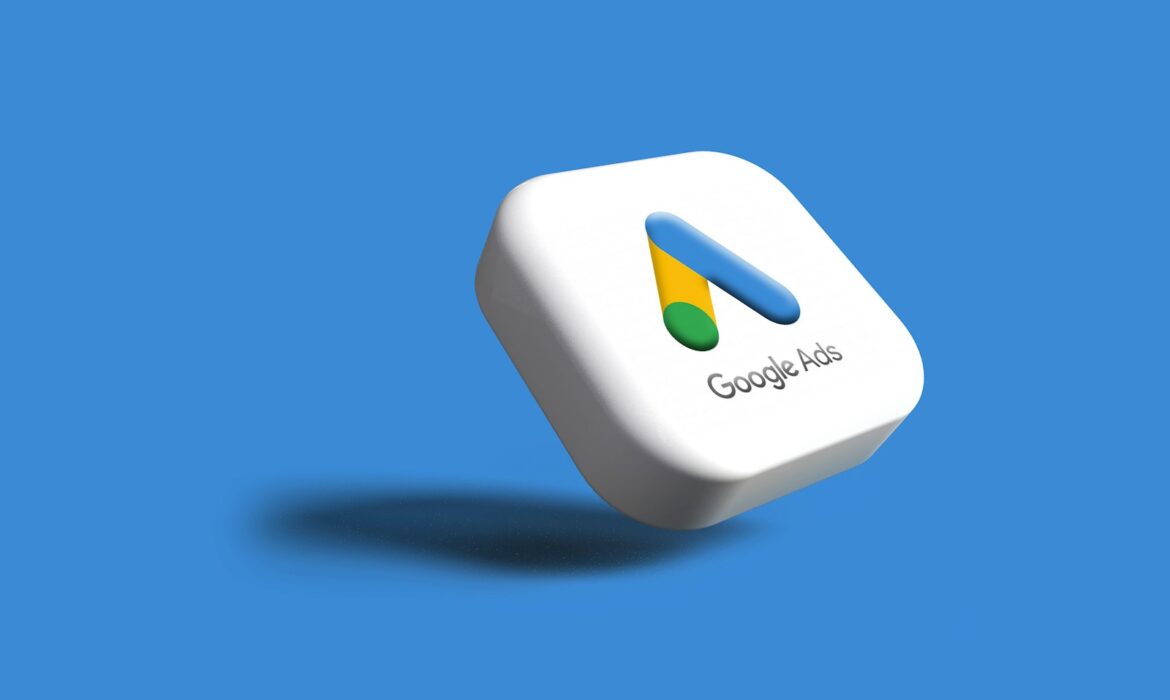
Becoming a Google Ads Expert
In today’s digital landscape, the demand for Google Ads specialists is rapidly increasing. Companies of all sizes are investing in online advertising to reach their target audience effectively. As a result, the role of Google Ads experts has become crucial in creating and managing successful ad campaigns, optimizing ad performance, and maximizing return on investment (ROI) (Simplilearn).
Importance of Google Ads Specialists
Google Ads specialists play a vital role in driving online advertising success. They possess the knowledge and skills necessary to create compelling ads, identify target audiences, optimize campaigns, and analyze performance metrics. By leveraging their expertise, businesses can achieve better visibility, generate qualified leads, and increase conversions. With the continuous growth of online advertising, the role of Google Ads specialists has become indispensable in the digital marketing landscape.
Skills and Knowledge Required
To become a successful Google Ads expert, a strong understanding of digital marketing principles is essential. Familiarity with concepts such as target audience segmentation, keyword research, ad copywriting, and conversion tracking is crucial. Additionally, proficiency in utilizing Google Ads tools and features, such as campaign creation, keyword bidding, ad scheduling, and audience targeting, is vital for effective campaign management.
Google Ads specialists should also possess analytical skills to interpret campaign data, identify trends, and make data-driven decisions. By analyzing key metrics and performance indicators, they can optimize ad campaigns, refine targeting strategies, and ensure maximum ROI.
Google Ads Certification Program
To validate your expertise in Google Ads, Google offers the Google Ads certification program. This program provides comprehensive training and assessments to enhance your knowledge and skills in Google Ads. By earning the Google Ads certification, you can demonstrate your proficiency in creating, managing, and optimizing Google Ads campaigns.
The certification program covers various aspects of Google Ads, including campaign setup, keyword targeting, audience targeting, ad formats, measurement, and optimization. It consists of multiple exams that assess your knowledge and practical understanding of Google Ads.
The Google Ads certification program not only enhances your credibility as a Google Ads expert but also provides you with the knowledge and confidence to excel in your digital marketing career. It serves as a valuable qualification that can open doors to career opportunities in freelancing, consulting, in-house marketing roles, or digital marketing agencies.
By becoming a certified Google Ads expert, you can showcase your proficiency to clients, employers, and potential collaborators, establishing yourself as a trusted professional in the field. It’s important to note that the Google Ads certification needs to be renewed periodically to ensure that you stay updated with the latest advancements in Google Ads.
Becoming a Google Ads expert offers exciting career prospects and the opportunity to work with a wide range of clients and industries. With the right skills, knowledge, and certification, you can elevate your digital marketing game and make a significant impact in the online advertising world.
Career Opportunities for Google Ads Specialists
Becoming a Google Ads expert opens up a range of exciting career opportunities in the field of digital marketing. Whether you prefer working independently, within an organization, or as part of a digital marketing agency, there are various paths you can take to leverage your expertise in Google Ads.
Freelancing and Consulting
Many Google Ads specialists choose to work as freelancers, offering their expertise to businesses of all sizes. This allows them to have flexibility in their work schedule and choose the clients they want to work with. As a freelancer, you can provide comprehensive Google Ads services, including campaign setup, optimization, and performance tracking. By managing multiple client accounts, you can gain diverse experience across different industries and build a strong reputation as a trusted digital marketing expert.
Working as a consultant is another option for Google Ads specialists. You can offer strategic guidance and advice to businesses looking to improve their online advertising efforts. This role allows you to have a direct impact on the success of your clients and provides opportunities to work on exciting projects.
In-House Marketing Roles
Many companies prefer to hire in-house Google Ads specialists to manage their advertising campaigns and ensure they have dedicated expertise within their organization. In this role, you would work closely with the marketing team to develop and execute effective Google Ads strategies. By collaborating with other departments, such as sales or product teams, you can align advertising efforts with broader business objectives. Working in-house allows for better coordination and integration of marketing efforts across different channels.
Digital Marketing Agencies
Digital marketing agencies often have a team of Google Ads specialists who work with multiple clients, providing them with comprehensive advertising strategies and campaign management. As part of an agency, you can gain valuable experience working with diverse clients from various industries. This exposure allows you to refine your skills, learn from different campaign scenarios, and stay up-to-date with the latest trends and strategies in the digital marketing landscape.
Whether you choose to freelance, work in-house, or join a digital marketing agency, the demand for Google Ads specialists is high. Businesses recognize the importance of online advertising and the need to effectively reach their target audience. This creates ample job opportunities and career growth prospects for individuals with Google Ads expertise. By continuously expanding your knowledge and staying updated with the latest features and best practices, you can elevate your digital marketing career as a proficient Google Ads specialist.
Key Metrics for Google Ads Campaigns
To effectively measure the performance of your Google Ads campaigns and make data-driven decisions, it’s crucial to understand and track key metrics. These metrics provide valuable insights into the health and effectiveness of your campaigns, allowing you to optimize performance and improve return on investment (ROI). Let’s explore the key metrics for Google Ads campaigns.
Understanding Google Ads Metrics
Google Ads metrics are critical indicators of a campaign’s performance and reveal the health and effectiveness of your ads. They capture instances of ad clicks, impressions, and interactions, providing insights into campaign performance (Agency Analytics). By analyzing these metrics, you can gain a deeper understanding of how your campaigns are performing and make informed decisions to optimize your strategies.
Importance of Tracking Metrics
Tracking metrics is essential for evaluating the success of your Google Ads campaigns. These metrics help you understand the impact of your ads, measure your return on investment, and identify areas for improvement. By monitoring these metrics regularly, you can identify trends, spot potential issues, and make informed adjustments to your campaign strategies. Tracking metrics allows you to measure the effectiveness of your ads and make data-driven decisions to optimize your campaigns.
Different Ways to Track Metrics
There are various ways to track and analyze metrics in Google Ads. Here are a few methods commonly used by marketers:
-
Google Ads Dashboard: The Google Ads platform provides a comprehensive dashboard where you can view and analyze various metrics. It offers a range of customizable reports that allow you to track metrics such as impressions, clicks, click-through rates (CTRs), conversion rates, and more. The dashboard provides real-time data and insights into the performance of your campaigns.
-
Conversion Tracking: Conversion tracking enables you to measure the actions that users take after clicking on your ads, such as making a purchase, submitting a form, or signing up for a newsletter. By setting up conversion tracking, you can attribute conversions to specific ads, keywords, or campaigns, providing valuable insights into the effectiveness of your advertising efforts.
-
Google Analytics Integration: Integrating Google Ads with Google Analytics allows you to access advanced metrics and audience insights. Google Analytics provides a deeper understanding of user behavior on your website, enabling you to track metrics such as bounce rates, time on site, and e-commerce transactions. By combining Google Ads data with Google Analytics, you can gain a holistic view of your digital marketing performance.
-
Third-Party Analytics Tools: In addition to the built-in tracking capabilities of Google Ads, there are third-party analytics tools available that can provide more advanced reporting and analysis. These tools offer additional features such as cross-channel attribution, advanced segmentation, and custom reporting, allowing you to dive deeper into your campaign metrics and gain actionable insights.
By leveraging these different tracking methods, you can gather comprehensive data on the performance of your Google Ads campaigns. This data empowers you to make informed decisions, optimize your campaigns, and drive better results.
Understanding and tracking key metrics is essential for becoming a successful Google Ads expert. By regularly monitoring and analyzing these metrics, you can identify areas for improvement, optimize your campaigns, and achieve your marketing goals.
Optimizing Google Ads Campaigns
To maximize the effectiveness of your Google Ads campaigns, it’s crucial to implement various optimization strategies. In this section, we will explore four key aspects of optimizing Google Ads campaigns: quality score and ad placement, ad extensions and performance, negative keywords and relevance, and ad scheduling and targeting.
Quality Score and Ad Placement
Google Ads utilizes a Quality Score system to determine the placement and cost of ads. The Quality Score is determined by factors such as relevance, click-through rate (CTR), and landing page experience. A higher Quality Score can lead to better ad placement and lower costs per click.
To improve your Quality Score and ad placement, focus on creating highly relevant and targeted ads. Ensure that your ad copy aligns with the keywords you are targeting and that your landing page provides a seamless user experience. By optimizing these elements, you can increase the likelihood of your ads appearing in prominent positions and attract more clicks.
Ad Extensions and Performance
Ad extensions play a crucial role in improving the performance of your Google Ads campaigns. These extensions provide additional information to users and increase the visibility of your ads. Some common ad extensions include call extensions, sitelink extensions, and location extensions.
By utilizing ad extensions, you can provide users with more opportunities to engage with your ads and increase the chances of conversions. For example, call extensions allow users to directly call your business from the ad, while sitelink extensions can direct users to specific pages on your website. Experiment with different ad extensions to find the combination that works best for your campaign goals.
Negative Keywords and Relevance
Negative keywords are an essential component of Google Ads campaigns. These keywords help filter out irrelevant searches and ensure that your ads are shown to the right audience. By effectively utilizing negative keywords, you can reduce the chances of wasted ad spend and improve the relevance of your ads.
Regularly review your search term reports to identify irrelevant search queries that trigger your ads. Add these keywords as negative keywords to prevent your ads from showing for those searches. This process helps refine your targeting, ensuring that your ads are displayed to users who are more likely to be interested in your products or services.
Ad Scheduling and Targeting
Ad scheduling allows you to choose specific days and times when your ads will be shown. By strategically scheduling your ads, you can maximize their impact and effectiveness. Analyze your campaign data to identify the times and days when your target audience is most active and adjust your ad schedule accordingly.
Additionally, leverage targeting options such as location targeting and audience targeting to ensure that your ads reach the right audience. Narrowing down your target audience based on demographics, interests, or behavior can significantly improve the relevance and performance of your Google Ads campaigns.
By optimizing these aspects of your Google Ads campaigns, you can enhance the effectiveness of your advertising efforts. Remember to regularly monitor and analyze the performance metrics of your campaigns to identify areas for improvement and make data-driven adjustments.
Keyword Research for Google Ads
When it comes to running successful Google Ads search campaigns, one of the foundational steps is conducting thorough keyword research. Keyword research plays a pivotal role in finding relevant and profitable keywords that align with your products and services. By understanding the importance of keyword research, utilizing the right tools, and optimizing your ad groups, you can enhance the effectiveness of your Google Ads campaigns.
Importance of Keyword Research
Keyword research is the process of identifying the search terms and phrases that users enter into search engines when looking for products or services. By conducting comprehensive keyword research, you can uncover valuable insights that inform your ad targeting and help you reach your desired audience. Here are some key reasons why keyword research is crucial for your Google Ads campaigns:
-
Relevance and Ad Rank: Thorough keyword research allows you to create themed ad groups and optimize your ad copy, landing pages, and keywords for better ad rank (Source). By aligning your ads with relevant keywords, you increase the chances of attracting clicks from users actively searching for your offerings.
-
Bid Decisions and Cost Per Click: Keyword research simplifies bid decisions by providing insights into the average cost per click for specific keywords. This information helps you allocate your budget strategically, optimize your bidding strategy, and make informed decisions about how much you’re willing to spend on each keyword.
-
Discovering New Opportunities: Keyword research uncovers new keyword variations and opportunities that you may not have considered initially. By exploring different keyword combinations and variations, you can expand your reach and tap into untapped markets.
-
Ad Effectiveness and Performance: Choosing the right keywords and optimizing for relevance can significantly improve your click-through rates, conversion rates, and overall ad effectiveness. By aligning your ads with the search intent of your audience, you increase the likelihood of attracting qualified traffic and driving conversions (Source).
Tools for Keyword Research
To conduct effective keyword research for your Google Ads campaigns, you can utilize various tools that provide valuable insights and data. While the Google Keyword Planner remains a popular choice, there are several other tools available that can enhance your keyword research process. Some commonly used tools include:
-
Google Keyword Planner: This tool, provided by Google, allows you to explore keyword ideas, search volumes, and trends. It helps you identify relevant keywords and provides estimated search volumes and bid suggestions. The Google Keyword Planner is particularly useful for conducting keyword research for Google Ads campaigns.
-
SEMrush: SEMrush is a comprehensive marketing toolkit that includes a powerful keyword research feature. It provides detailed information about search volumes, keyword difficulty, and competitor analysis. SEMrush can assist you in identifying valuable keywords and refining your overall strategy.
-
Ahrefs: Ahrefs is primarily known as an SEO tool, but it also offers robust keyword research capabilities. It provides insights into keyword search volumes, difficulty scores, and competitor analysis. Ahrefs can help you identify relevant keywords and assess their competitiveness.
Themed Ad Groups and Optimization
Themed ad groups are an important aspect of effective keyword research and campaign optimization. By organizing your keywords into relevant ad groups, you can create more targeted and focused ads. This approach allows you to tailor your ad copy, landing pages, and bidding strategies to match the specific keywords within each ad group.
When creating themed ad groups, consider grouping keywords based on their relevance to specific products, services, or themes. This cohesive structure helps improve the overall quality and relevance of your ads, leading to higher click-through rates and better ad performance. Additionally, it enables you to write more compelling ad copy that directly addresses the needs and interests of your target audience.
Optimizing your themed ad groups involves continuous monitoring and refinement. Regularly review the performance of your keywords, ad copy, and landing pages. Consider making adjustments based on data-driven insights to improve your overall campaign effectiveness.
By prioritizing keyword research, utilizing the right tools, and optimizing your ad groups, you can elevate your Google Ads campaigns and increase the likelihood of reaching your target audience. Remember to regularly monitor and update your keyword strategy to stay aligned with evolving search trends and user behavior.
Google Ads Expert Certification
Becoming a Google Ads expert requires not only practical experience but also a deep understanding of the platform and its features. The Google Ads expert certification is designed to recognize individuals who have advanced knowledge in creating, managing, measuring, and optimizing Google Ads campaigns (Google Ads Support).
Overview of Google Ads Expert Certification
The Google Ads expert certification exam is a comprehensive assessment of an individual’s proficiency in Google Ads. It covers a wide range of topics, including campaign setup, ad creation and optimization, measurement and optimization, and troubleshooting (Google Ads Support). By successfully passing the exam, individuals demonstrate their expertise in leveraging the full potential of Google Ads to achieve marketing goals.
Exam Topics and Coverage
The Google Ads expert certification exam evaluates an individual’s knowledge and skills across various areas of Google Ads. Some of the key topics covered in the exam include:
-
Campaign setup: This includes understanding the different campaign types, setting up ad groups, and defining campaign settings to align with specific marketing objectives.
-
Ad creation and optimization: This topic delves into creating compelling ads, utilizing ad extensions, optimizing ad performance, and improving quality scores.
-
Measurement and optimization: Here, individuals are tested on their ability to track and measure campaign performance using Google Ads metrics, analyze data for optimization opportunities, and implement optimization strategies to improve campaign effectiveness.
-
Troubleshooting: This section assesses an individual’s ability to identify and resolve common issues that may arise during campaign management, such as ad disapprovals or performance fluctuations.
Renewal and Validity of Certification
The Google Ads expert certification is valid for one year. To maintain the certification, individuals are required to renew it annually. This renewal process ensures that certified experts stay up-to-date with the latest developments and changes in Google Ads. By renewing their certification, experts demonstrate their commitment to continuous learning and their ability to adapt to evolving digital marketing trends (Google Ads Support).
By obtaining the Google Ads expert certification, individuals can showcase their expertise and credibility as digital marketing professionals. It is a valuable credential that can open doors to new career opportunities and provide assurance to clients and employers of their proficiency in managing Google Ads campaigns effectively.
Advanced Strategies for Optimizing Google Ads
To truly excel as a Google Ads expert, it’s essential to implement advanced strategies for optimizing your campaigns. These strategies can help you maximize your ad performance, increase click-through rates (CTR), and drive conversions. In this section, we will explore five key strategies for optimizing Google Ads: optimizing bidding strategies, utilizing responsive search ads, leveraging ad extensions, audience targeting, and monitoring and adjusting keyword bids.
Optimizing Bidding Strategies
Optimizing your bidding strategies is crucial for achieving the best results in your Google Ads campaigns. According to a study conducted by Adzooma, optimizing bidding strategies can result in a 25% increase in conversions (Search Engine Land). There are several bidding strategies available in Google Ads, such as manual CPC, target CPA, and target ROAS. It’s important to analyze your campaign goals, budget, and performance data to determine the most suitable bidding strategy for your specific needs.
By setting appropriate bid adjustments for different devices, locations, and audiences, you can optimize your bids and allocate your budget more effectively. Regularly monitor your campaign performance and make adjustments as needed to ensure optimal results.
Responsive Search Ads
Implementing responsive search ads (RSAs) can significantly enhance your ad performance. RSAs allow you to create flexible ads that automatically adjust their size, format, and content to fit various ad spaces. According to studies, RSAs can result in a 10-15% increase in click-through rate (CTR) compared to traditional expanded text ads (Search Engine Land).
To make the most of RSAs, include multiple headlines and descriptions in your ad assets. Google Ads will automatically test different combinations and optimize your ads to achieve the best results. Regularly review and refine your RSA assets based on performance data to continuously improve your ad performance.
Utilizing Ad Extensions
Ad extensions play a crucial role in enhancing your ad visibility and click-through rates. By utilizing ad extensions, such as callout extensions and sitelink extensions, you can provide additional information and increase the relevance of your ads. Studies show that utilizing ad extensions can improve ad visibility and click-through rates by 10-15% (Search Engine Land).
Callout extensions allow you to highlight specific features, promotions, or unique selling points of your products or services. Sitelink extensions enable you to add additional links to relevant pages on your website, providing users with more options to explore. Experiment with different ad extensions and monitor their performance to identify the most effective ones for your campaigns.
Audience Targeting
Audience targeting is a powerful feature in Google Ads that allows you to reach specific groups of users based on their demographics, behaviors, or interests. By targeting specific audiences, you can increase the relevance of your ads and improve campaign performance. Studies indicate that targeting specific audiences can result in a 20% decrease in cost per click (CPC) and a 15% increase in conversion rate (Search Engine Land).
Utilize audience targeting options such as demographic targeting, affinity audiences, and in-market audiences to reach the right people with your ads. Regularly analyze the performance of your audience targeting and make adjustments as needed to optimize your campaigns.
Monitoring and Adjusting Keyword Bids
Regularly monitoring and adjusting keyword bids is essential for optimizing your Google Ads campaigns. By closely tracking the performance of your keywords, you can make informed decisions about bid adjustments to improve your ad position, click-through rate, and conversion rate. Studies suggest that monitoring and adjusting keyword bids can lead to a 15-20% decrease in cost per acquisition (CPA) and a 10-15% increase in conversion rate (Search Engine Land).
Keep a close eye on metrics such as average position, quality score, and conversion rate to identify underperforming keywords and opportunities for improvement. Regularly adjust your keyword bids based on performance data and the goals of your campaign.
By implementing these advanced strategies for optimizing Google Ads, you can elevate your digital marketing game and achieve outstanding results. Continuously analyze your campaign performance, experiment with different strategies, and adapt your approach based on data-driven insights. Stay up-to-date with the latest features and updates in Google Ads to leverage new opportunities and stay ahead of the competition.
Recent Updates and Features in Google Ads
To stay ahead in the ever-evolving world of digital marketing, it’s important for digital marketing experts to stay updated on the latest features and updates in Google Ads. Here are some of the recent updates that have revolutionized the way advertisers can optimize their campaigns:
Responsive Search Ads
Google Ads introduced Responsive Search Ads (RSA), allowing advertisers to provide multiple headline and description options for their ads. This feature leverages machine learning to automatically optimize ad combinations and deliver the most relevant message to users. By providing more flexibility in ad creation, RSAs have increased the click-through rate (CTR) by 5-15% compared to traditional text ads. This enhancement enables advertisers to effectively reach their target audience and improve overall ad performance.
Smart Bidding
Smart Bidding is another powerful feature that has transformed the way advertisers optimize their bids. By utilizing machine learning algorithms, Smart Bidding automatically adjusts bids in real time to maximize conversions or conversion value. This feature takes into account various factors, such as device, location, time of day, and user behavior, to deliver the most impactful bids. Advertisers who have implemented Smart Bidding have seen a significant increase in conversions, with some experiencing a 20% boost compared to manual bidding strategies.
Performance Max Campaigns
Google Ads introduced Performance Max campaigns to help advertisers reach a broader audience across multiple channels. This campaign type combines search, display, and YouTube ads to deliver optimized ads to users at the right time and on the right platform. Performance Max campaigns have proven to be highly effective, with advertisers experiencing a 50% increase in conversions compared to other campaign types. This feature allows digital marketing experts to maximize their reach and drive more conversions by leveraging the full potential of Google’s advertising ecosystem.
Video Action Campaigns
Video Action campaigns enable advertisers to optimize their video ads for specific actions such as clicks, form submissions, or purchases. By utilizing machine learning algorithms, Google Ads automatically places video ads across various placements and formats to drive the desired actions. This feature has shown promising results, with advertisers achieving a 60% increase in conversions compared to standard video campaigns. Video Action campaigns provide an effective way for digital marketing experts to engage their audience and drive meaningful actions through compelling video content.
Performance Planner
The Performance Planner is a valuable tool introduced by Google Ads to help advertisers make informed decisions about their campaign budgets. Leveraging historical performance data, the Performance Planner suggests budget allocations and forecasts future results based on different budget scenarios. By using this tool, advertisers can optimize their budget allocation to achieve their desired goals. The Performance Planner has proven to be highly effective, with advertisers experiencing a 15% increase in conversions while maintaining the same budget. This resourceful tool empowers digital marketing experts to make data-driven decisions and maximize the impact of their advertising campaigns.
Keeping up with the latest updates and features in Google Ads is crucial for digital marketing experts to stay at the forefront of the industry. Responsive Search Ads, Smart Bidding, Performance Max Campaigns, Video Action Campaigns, and the Performance Planner are just a few examples of the innovative tools and features that can elevate your digital marketing game and drive remarkable results. By leveraging these advancements, digital marketing experts can optimize their campaigns and achieve their desired objectives with greater efficiency and effectiveness.
- Boost Your Business: Expert Google My Business Ranking Tipsby Freelancertamal●March 1, 2024
- Strategies to Improve Your Website Visibilityby Freelancertamal●February 18, 2024
- Unlocking Success: The Art of Freelance Project Managementby Freelancertamal●January 4, 2024
- Mastering Email Marketing in Rangpur: Secrets to Digital Triumphby Freelancertamal●January 4, 2024










